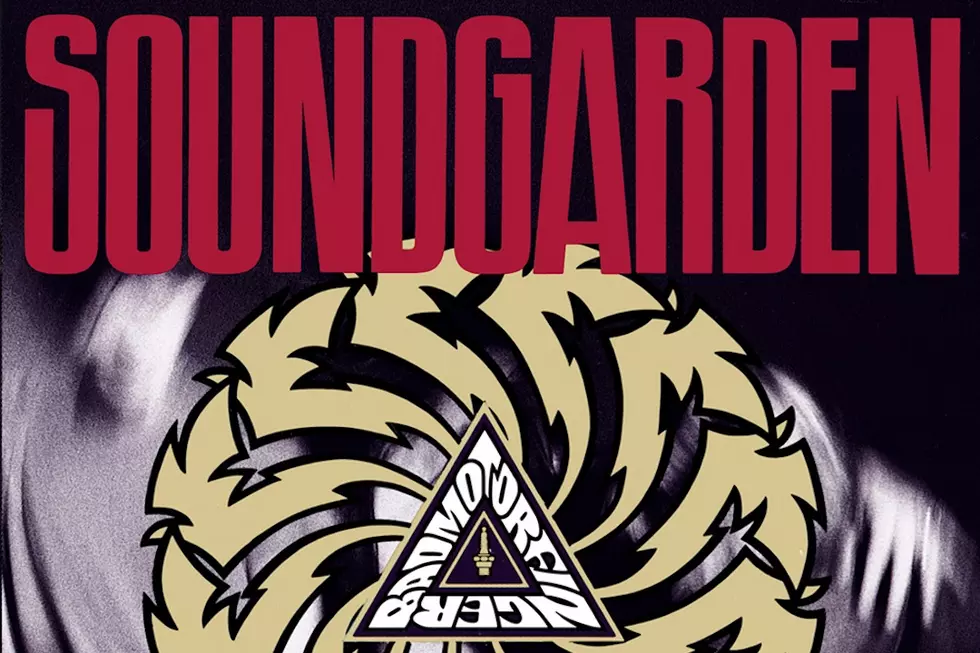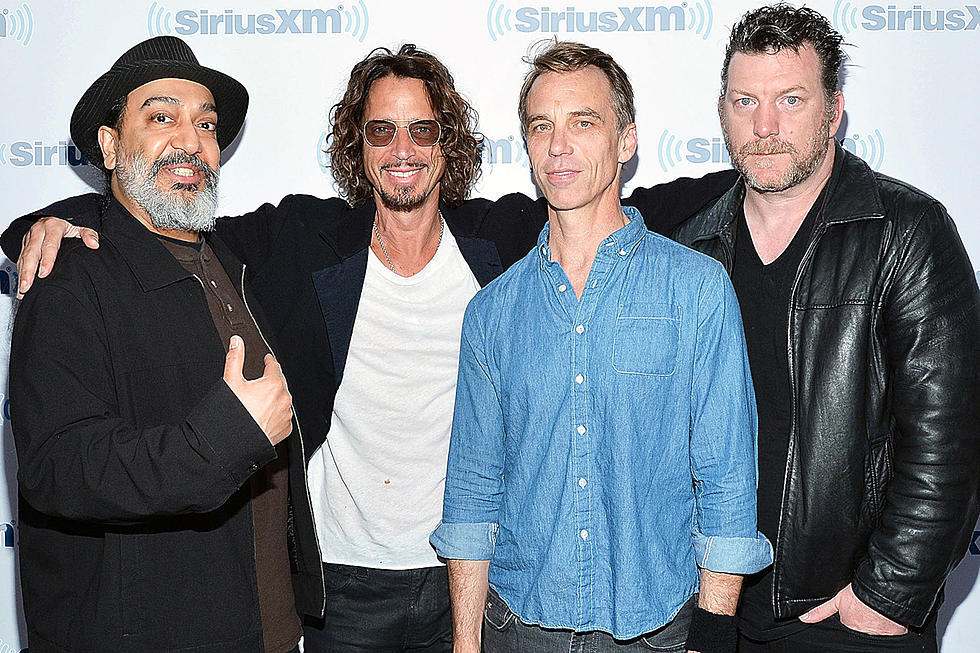
How Soundgarden’s ‘Badmotorfinger’ Finally Got Some Attention
The late summer and early fall of 1991 effectively witnessed the birth of grunge via the release, within just a few weeks, of Nirvana's Nevermind, Pearl Jam's Ten and, on Oct. 8, Soundgarden's Badmotorfinger. Alice in Chains' Facelift had arrived earlier, in 1990.
All of these albums were crucial in that, together, they helped usher in a sea change across the music industry. Yet Soundgarden, who had been first to the table, forming all the way back in 1984, would be the last of these so-called "big four" to enjoy their just desserts: not enjoying truly massive hit singles at radio or multi-platinum sales until 1994's Superunknown because they did it their own way, the hard way.
Unlike Nirvana (which led the charge by breaking punk rock and college rock to the masses via "Smells Like Teen Spirit"), Alice in Chains (which essentially made heavy metal palatable for the flannel-wearing hordes), and Pearl Jam (which did the same for classic rock in the eyes of born again "alternative rockers"), Soundgarden's music on Badmotorfinger put willing listeners to the test with its sinister, oblique lyrics, drop-tuned guitars, unusual time signatures, thorny arrangements and unrepentant heaviness.
Sure, the band scored decent MTV coverage for the album's most linear, if boring, doom riff in "Outshined," but most of the remaining cuts refused to take it easy on would-be fans and critics, many of whom weren't quite sure what to make of the band, either.
"I remember Mark [Arm] from Mudhoney said, 'Hey man, I just heard Badmotorfinger,'" lead guitarist Kim Thayil told Paste in 2013, "I’m all, 'What do you think?' [Laughs] And he’s like, 'Fuck, it sounds like Rush!'”
He elaborated, "At the time, if people didn’t like us, they’d say they it was because we were these scruffy, punk-rock assholes, or because we sounded too much like some kind of metal band. And if they did like us, it was the same argument [laughs], ‘Oh, it’s cool because they’re metal, or it’s cool because they come from this punk scene.’ We still get that.” Metal or punk or something else? Pinning any specific label onto Soundgarden has always been an exercise in futility.
Looking back on what had come before, Soundgarden's early-days roots in hardcore hadn't stopped the group from essentially meshing Black Sabbath and Led Zeppelin (and Black Flag), beginning with their debut EP, 1987's Screaming Life. Producer Terry Date was brought back to work on Badmotorfinger, which marked the debut of bassist Ben Shepard, who joined the band prior to the start of the sessions.
Watch Soundgarden Perform 'Outshined'
All four musicians – Thayil, Shepard, singer Chris Cornell and drummer Matt Cameron – contributed strong songwriting efforts to the album, led by Cornell's serpentine "Rusty Cage" (later covered by Johnny Cash), the aforementioned "Outshined," quite surreal "Searching with My Good Eye Closed," hypnotic "Mind Riot" and less distinctive "Holy Water."
For his part, drummer Cameron delivered the driving, sax-enhanced "Drawing Flies" and, in unison with Thayil, the monstrous doom-riffing of "Room a Thousand Years Wide" and the ominous "New Damage," one of many songs boasting unorthodox time signatures, in this case 9/8.
Then there was newcomer Shepherd, whom Cornell said in Kerrang! had brought a "fresh and creative" approach to the band's recording process, with Thayil also telling Kris Nicholson of The Music Paper that Shepherd's contributions helped make the album "faster" and "weirder." By this they were referring to Ben's two-minute punk rock hyper-blast "Face Pollution," the more deliberate, yet surprisingly infectious "Somewhere" and, working with Cornell, the ultra-doomy "Slaves and Bulldozers" – an eclectic triplet to say the least.
But Badmotorfinger's arguable piece de resistance was a four-way band collaboration called "Jesus Christ Pose," which rose from Cameron's mind-boggling percussive assault to boast dissonant six-string strangling over a relentlessly charging main riff, all topped by Cornell's inimitable wails decrying the calculated martyr-like posturing of so many rock superstars. It epitomizes the cryptic, challenging beauty of the band's music.
Indeed, even Badmotorfinger's title was intentionally chosen for its multiple potential interpretations, none of which could be properly explained by cover art's depiction of a spark plug within a mysterious cyclone design. But, in a promo CD shipped to radio and press by A&M Records, Thayil suggested that the title played on the Montrose song "Bad Motor Scooter," adding to The Music Paper: "It was sort of off the top of my head. I simply like it because it was colorful. It was kinda aggressive, too. ... It conjures up a lot of different kinds of images. We like the ambiguity in it, the way it sounded and the way it looked."
While it eventually broke the platinum sales mark, Badmotorfinger remained something of a cause celebre for grunge connoisseurs until broader swathes of music consumers revisited it after digesting the easier rewards of Superunknown, years later. While Badmotorfinger's status as a grunge-era classic was never in doubt, its deeper, darker treasures simply didn't give themselves up to listeners as freely as Nirvana's or Pearl Jam's has. But who would have it any other way?
Perhaps Kim Thayil summarized it best when he jokingly (but ultimately, correctly) told Kerrang! Magazine that Badmotorfinger was the "Heavy Metal White Album."
Top 30 Grunge Albums
Heart’s Ann Wilson Discusses the Rise of Grunge
More From Ultimate Classic Rock









